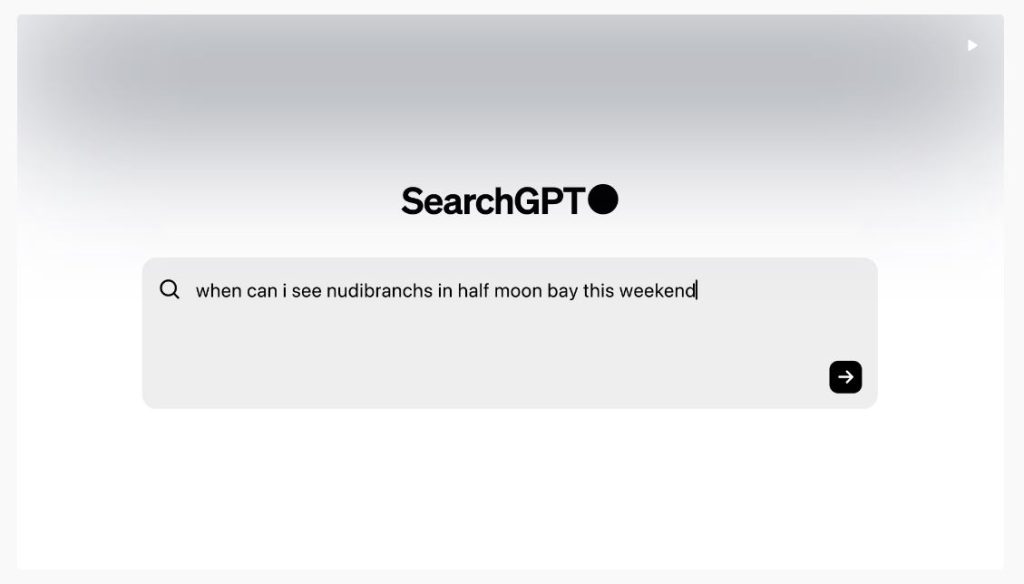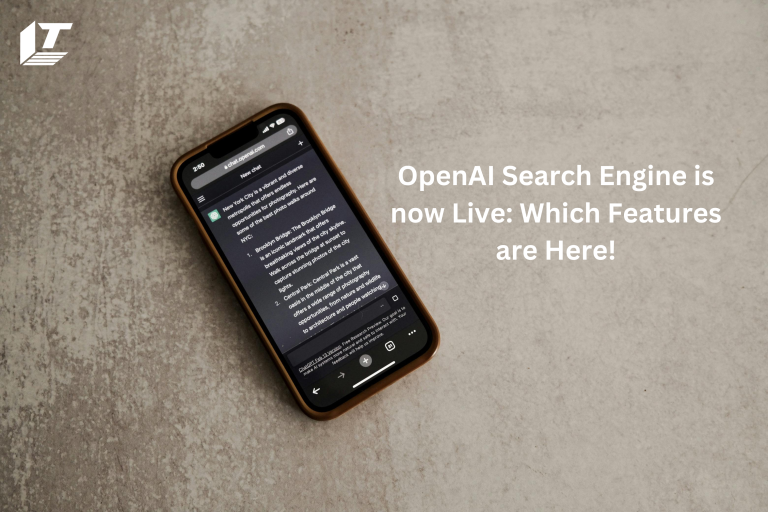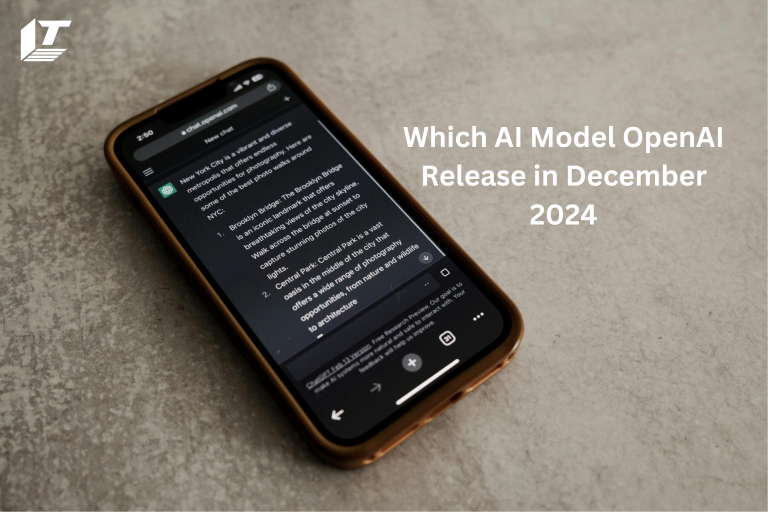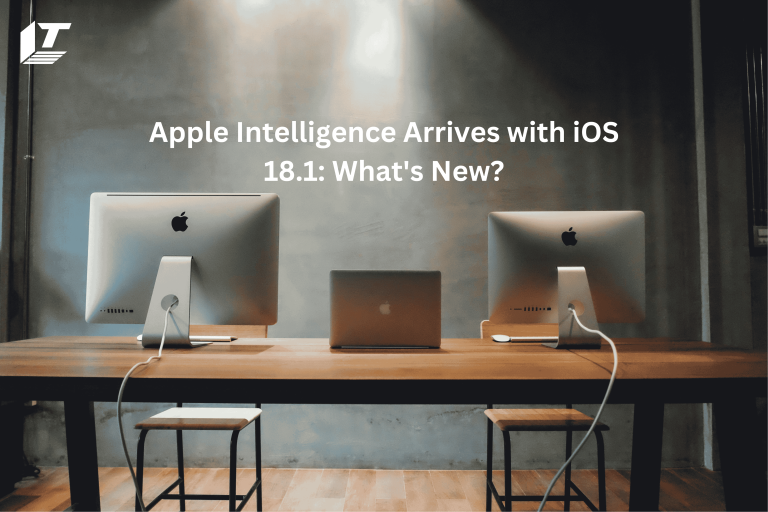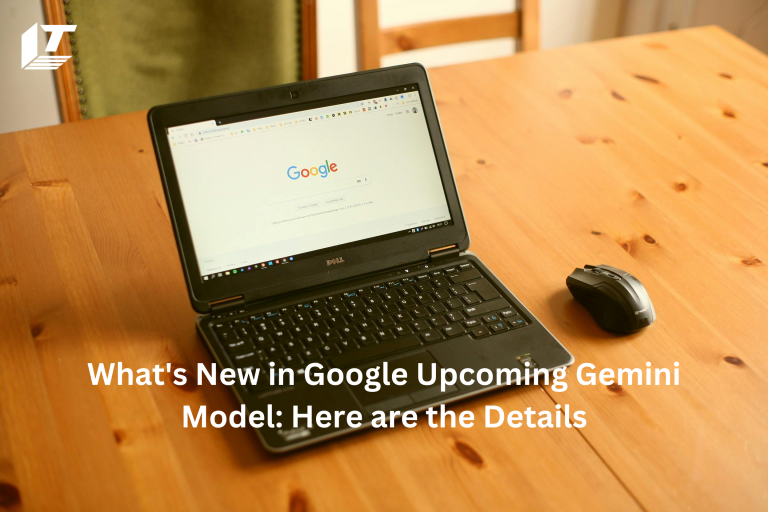On Thursday, July 25, 2024, OpenAI unveiled SearchGPT, a revolutionary AI search prototype that replaces keyword-based search with conversational search.
This means that inquiries can be made in ordinary language, as in a debate. Compared to traditional search engines, where we have to type specific keywords to find information, this is a big change.
However, is SearchGPT really able to compete with Google? How does Search GPT differ from AI review?
Also, what is the difference between Chat GPT and Search GPT?
To find answers to each of these questions, continue reading.
What is SearchGPT?
OpenAI created SearchGPT, a prototype search engine that leverages AI to enhance user experience.
It’s not just a chatbot like ChatGPT, even though it has conversational components. Let’s review its key features.
Relevant and Direct Answers
SearchGPT responds directly to user inquiries rather than simply listing links.
For example, SearchGPT might be asked, “What are the best wireless noise canceling headphones in 2024?” Be able to briefly describe the leading candidates, emphasizing their advantages and disadvantages in light of user and expert opinions.
In contrast, traditional search engines display a list of links that lead users to specific articles or videos.
Relevant Sources
To guarantee truth and openness, SearchGPT provides clear references and links to original content with each of its answers. This makes it easy for users to fact-check and dive deeper into the topic.
Conversional Search
With Search GPT, users can interact with search engines. This opens the door to a more customized and dynamic search experience as we can ask follow-up questions or modify our original query in light of the results we get.
SearchGPT Vs. Google
Everyone is discussing SearchGPT as the main competitor to Google in the future. Let’s examine the variations in their search method.
Keyword-Based vs. Conversational Search
Through follow-up conversations, users can refine their queries using SearchGPT’s conversational interface and ask questions in natural language. This makes the search process livelier and engaging.
On the other hand, Google still uses traditional keyword-based search, in which users enter search phrases and get a list of matching websites.
One Complete Answer vs. a Collection of Links
One of the main differentiators of SearchGPT is its ability to provide straightforward answers to queries. It helps users find information more quickly and easily by summarizing and clearly citing information from multiple sources instead of having to click multiple links.
In contrast, Google usually provides the user with a list of links to websites. It is up to them to sort through the results and find the information for themselves.
Understanding Enabled by AI vs. Keyword Matching
AI language models are used by SearchGPT to interpret user searches and determine their intent. This enables it to provide answers that are more contextually relevant even in cases where the user’s query is poorly formulated or contains unclear terms.
The primary method used by Google is keyword matching, which occasionally returns results that are less relevant or useful, especially for sophisticated or nuanced queries.
Compared to Standalone Searches vs. Dynamic Context
By preserving context across many encounters, SearchGPT enables users to expand on earlier queries and find more relevant answers. This gives the impression that you are debating with knowledgeable help during the search process.
On the other hand, each Google search is usually handled as a separate query, with no record of previous exchanges.
Current Data as vs. Searching the Whole Internet
SearchGPT uses real-time data from the web to provide accurate and timely information. This means that users are more likely to find the latest information on a particular topic.
Although Google’s huge index of web pages is extensive, it may contain outdated or irrelevant content.
When Will SearchGPT be Released?
Currently, SearchGPT is in its limited prototype stage, which means that the general public cannot yet access it. To get input and improve the product, OpenAI is already testing the prototype on a small number of users and publications.
If you want to try it, you can join the waiting list on the SearchGPT website. Keep in mind that you will need a ChatGPT account.
A full public release of SearchGPT is unlikely until late 2024, especially as OpenAI has not specified when it will be available to a wider audience.
It is more likely that ChatGPT will gradually incorporate SearchGPT functionality during 2024 and 2025, with a possible independent release later, subject to user input and testing.
Can SearchGPT Compete with Google?
Although Search is GPT’s prowess, Google is undeniably superior.
Google’s Advantages: Several factors have contributed to Google’s considerable dominance in the search engine market, including:
Existing infrastructure: Over the decades, Google has built an unprecedented index of web pages, giving users access to a vast amount of data. They are industry leaders in this area thanks to their significant investments in technology and search infrastructure.
Market Dominance: We often refer to the search process as “Googling” because of Google’s long-standing dominance, which has cemented its place in user habits and made it the default search engine for many.
Strong Ecosystem: Google has built a strong ecosystem that can be difficult for newcomers to disrupt thanks to interactions with other products like Gmail, Maps and YouTube.
Additional features: In addition to its search function, Google offers many services, including maps, news, photos and shopping. It also excels in vertical search domains such as news, shopping and local search.
Concluding Thoughts: Future of Search
AI is changing the way we engage with content on the Internet and has the potential to change the way we think about search engines.
The Development of Search Engines
Since they were first developed as basic keyword matching tools, search engines have evolved significantly.
Traditional keyword-based search is gradually giving way to a more engaging and interactive experience, as we can see.
As AI helps search engines better understand user intent, generate appropriate responses and deliver personalized results, it plays a major role in this transformation.
Additionally, the inclusion of multimodal content—such as videos and images—expands search capabilities and improves its informativeness and engagement.
SearchGPT’s and AI Overviews’ Effects
AI-powered search tools, such as AI Review and SearchGPT, have the potential to completely change our expectations. We can expect faster, more accurate and customized search results in the future.
These findings should be presented in a way that is easy to understand and useful, possibly including summaries, multimedia and unambiguous references for further research.
Context-Aware and Customized Search
By delving deeper into user intent, artificial intelligence (AI) has the potential to augment search. By considering the user’s search history, preferences, and current context, search results can become more contextual as a result.
Users will soon be able to interact with search engines in a more intuitive and natural way thanks to interactive search interfaces, such as those provided by SearchGPT.
Ethical Issues and Difficulties
AI-powered search also raises important ethical issues. Potential biases in AI-generated results, the spread of misinformation, and the privacy implications of tracking and analyzing user activity are some of the issues that raise concerns.
It is also important to consider the impact on content producers, whose websites may see a decline in visitors when search engines offer the obvious solution.
The Path Ahead
In search, the coming years will likely be characterized by constant innovation and adaptation. As AI technology advances, we can expect to see additional features and capabilities appear, continually expanding the capabilities of search engines.
Nevertheless, countless concerns and ambiguities remain. Moving forward, there are a number of concerns that need to be carefully explored, including the appropriate balance between AI and human treatment, the importance of trust and transparency, and the ethical implications of AI-generated content.
Perhaps, we’re just on our way to creating the next generation of search engines.
Frequently Asked Questions
What distinguishes Google from SearchGPT?
Using a conversational interface, SearchGPT understands queries in plain language and offers short answers with cited references. Google, on the other hand, shows users a list of links to relevant pages and uses mostly keyword-based searches. While Google provides a comprehensive index of the entire web with an emphasis on term relevance, SearchGPT tries to provide more concise, current answers.
What distinguishes ChatGPT from SearchGPT?
Search GPT’s architecture prioritizes short answers and quick information retrieval. Powered by natural language, ChatGPT is a conversational AI that can generate original text formats, summarize information, and answer general knowledge queries based on its training set.
Will Google or other search engines be superseded by SearchGPT?
It’s too early to tell if SearchGPT will eventually replace existing search engines. Despite providing innovative services, Google is well established in the industry. However, SearchGPT’s conversational style and emphasis on straightforward answers may change the way consumers search the Internet for information.
Ada Spark is a tech explorer and creative content creator with 6+ years of experience. Appreciate teamwork and creative strategies to promote content. Always looking to work according to the latest trends and create content that makes a difference. Also familiar with infographics and other forms of content.

